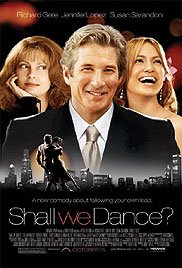
Mark 1, 5-8: John the Baptist
In every sense of the word, John the Baptist was a star. People came trooping to hear him speak. The whole country of
You see, when you want people to listen to you, they ask several questions first: Why should they listen to you? What have you done? What have you accomplished? What do you radiate that confirms or negates your words? How much congruence is there between your attitude and your words? This is credibility. It is the example of your life that is the foundation of trust. Trust comes when others perceive the match between your words and your actions. It is always the life of the leader, the teacher or the preacher that gives credibility to the message. People trusted him that they decided to confess their sins and be baptized.
But how can we be trustworthy? We all know we are not totally credible. When we uphold kindness, we know that we have not been totally compassionate. When we maintain the virtue of patience, we know that we have not been patient at all times. When we sustain that love is the ultimate law of life, we know that we have been bitter and hateful at some point. After confession, we enter into a promise that we will forever change, and then find ourselves committing the same sins after. Nonetheless, the Lord asks us to try, to attempt, to make an effort, to strive --- and to continue doing so for the rest of our lives. As we strive for such trustworthiness, our perceived credibility will increase. Often what needs learning is the fact that we spend much of our time on appearances, the sound of things, the way we are quoted, how people perceive us, the spin we can put on events and our ability to manage the image we maintain of ourselves rather than focus on what is real. Credibility is not about looking good, it is about being good.
For many years, the people have not heard the voice of prophets, and they were waiting for an authentic word from God. And they heard it in John. In every walk of life, the expert is recognizable. We do recognize the teacher who knows his subject. We do recognize the doctor who knows his expertise. Will people recognize Christ when we claim that we are Christians?
The film, Shall We Dance, tells the story of John Clark (Richard Gere) who finds something lacking in his life despite having a successful career, a charming wife (Susan Sarandon), and a loving family. And found that missing piece in ballroom dancing. One day John discovered that his officemate, Link (Stanley Tucci), is also into dancing. In one scene at the Men’s Rest Room, Link told John that he could see just from his posture that he had been dancing.
The season of Advent encourages us to show that we have been dancing: That we have been trying to become credible Christians. Can people see our faith by what we say and the way we say things? Do our words, deeds, feelings and thoughts match our interactions with people? Our lives should be real testimonies of our faith.
After Jesus had been baptized by John, Jesus began his public ministry. One day John sent his disciples to see Jesus, wanting to be assured that He was indeed the one sent by God. And Jesus sent the messengers back to tell John to trust what he had seen and heard, to believe the testimony of His works. Jesus did not offer a philosophical and theological answer, he simply said, “Look at my life, and you know.” Jesus’ life is the message as John’s life had been. Let us then remember that today it is who we are, what we do, and what we live for that truly testifies to the goodness of God.

No comments:
Post a Comment